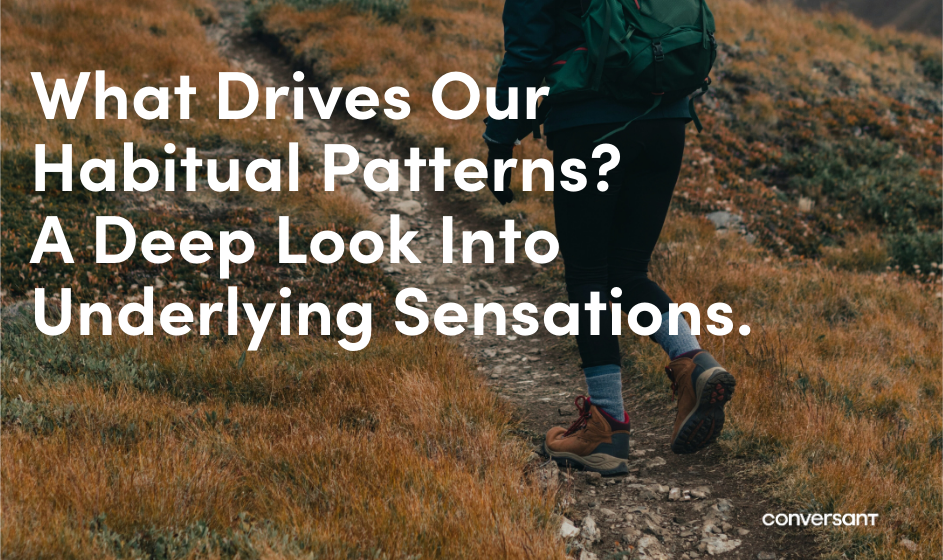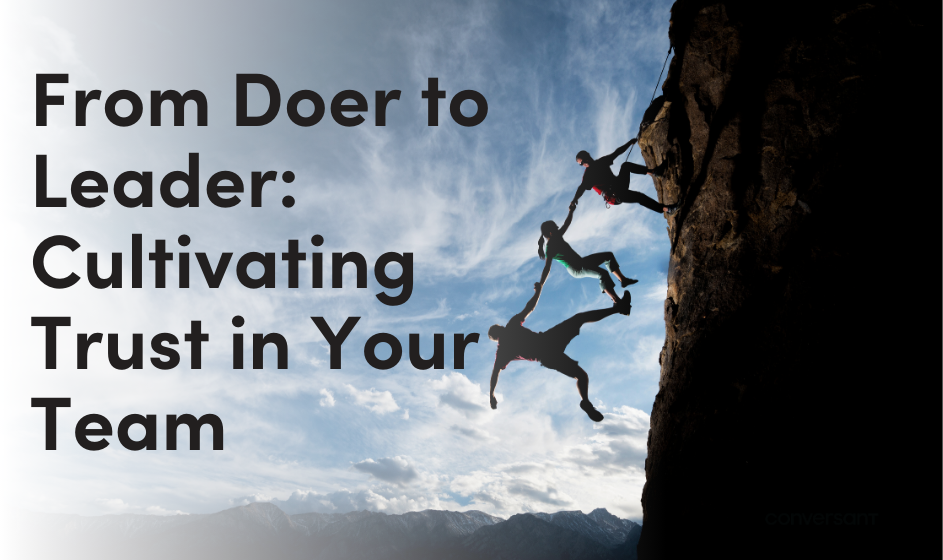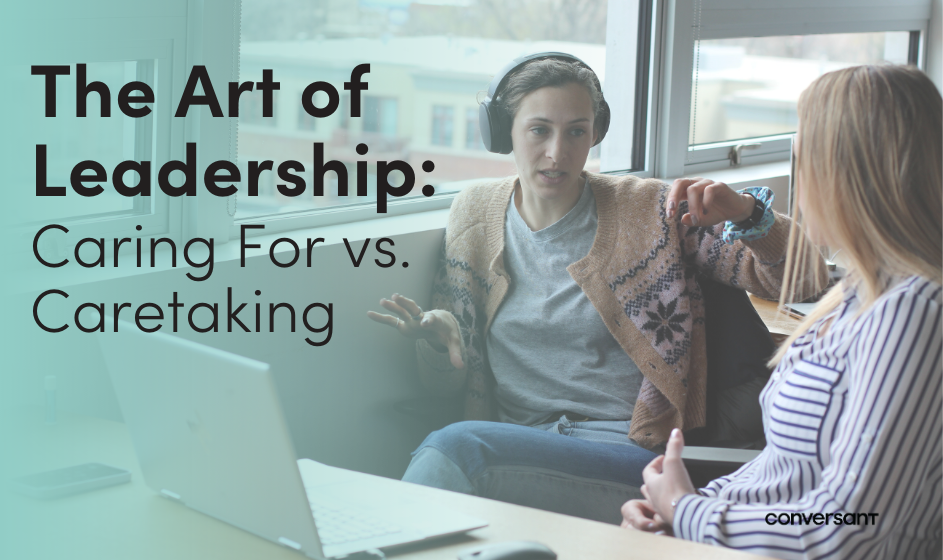Connection isn’t just a convenient by-product of results. Rather, high levels of connection within an organization actually help shape the results. When people within a workplace feel a sense of community and the possibility to make a valuable contribution, the need for supervision and added accountability decreases. In this episode, Mickey and Colin begin with the question of how the quality of connection informs the outcomes and the methods needed to take along the way to get there.
Highlights
- If a leader’s purpose is to liberate possibility in your organization, that’s borderline impossible unless you feel connected.
- Any time you find extraordinary performance, you find a sense of solidarity or connection.
- Supervision costs go down as connection goes up.
- Part of what makes us feel connected is when we understand and respect each other’s purposes, concerns, and circumstances.
- Connection is not just a good moral practice; it is an intelligent and highly practical way to achieve accelerated results.
- A method without purpose is just a fantasy. The tension between the purpose and results is what reveals a connected method.
The Quality of Connection
0:13 Mickey: We’re talking about how the quality of connection shapes the quality of results. First of all, do you think that’s valid, and if so, what has you say that?
0:32 Colin: I used to define leadership as “a leader takes me somewhere I haven’t been before” and “a manager helps me do what I’m currently doing better.” I no longer think that’s a good definition of leadership.
0:51 Colin: In this world of disruption, emergence, prototyping, innovation, often the leader doesn’t quite know where we’re going yet. The act of leadership is an act of liberation—the liberation of spirit, energy, and emotions, with purpose and with some boundaries.
1:12 Colin: If a leader’s purpose is to liberate possibility in your organization, that’s borderline impossible unless you feel connected. If you are only concerned with results and winning—there’s nothing wrong with that, by the way—you’re not liberating anything.
1:47 Mickey: It starts out with a sense of something deeply human: being connected. When we research great performance, one of the things that people report over and over again is a sense of community: a group of people large or small who are in something together, shoulder-to-shoulder, and connecting emotionally. People really feel like it’s “we” doing something “we” are proud to do together. Any time you find extraordinary performance, you find a sense of solidarity or connection.
2:40 Mickey: Where people suffer and say the work is not worth it, always they’ll talk about feeling excluded, isolated, judged, something that has them feel like they are not a legitimate member of a larger whole.
2:56 Mickey: Ask yourself, is that the case when you think of some of your best, brightest, most enjoyable accomplishments, was there a sense of connection with people? And where disappointment loomed large, was there disconnection?
3:18 Mickey: When we look at the last thirty years of talking to people about the nature of great results, we keep seeing this. If you look at disconnection on one end of a spectrum and connection at the other, people producing results per unit of time, money, and stress are always ways on the end with connection. People who say the work is brutally hard, debilitating, and not worth it, they talk about disconnection.
3:52 Colin: Some years ago I was talking to a bunch of volunteer firefighters around the world. In Australia in particular, bush fires (you call them wildfires) are a challenge. The firefighters made truly extraordinary contributions, saved lives, and saved property. When you asked what was going on for them, some things become apparent really quickly.
4:31 Colin: The firefighters felt like they belonged; there was a connection, to the level that they didn’t even need to talk about accountability, because they trusted each other so much.
The firefighters felt so connected that they knew someone had their back, which meant their capacity to make smart, brave choices brilliantly enhanced.
4:56 Colin: The leaders understood that this purposeful connection of being together meant that people just knew what to do. There was no need for lots of “role clarity.”
Purposes, Concerns and Circumstances
5:27 Mickey: As you know, we’ve seen over the years working in hundreds of organizations in 150 countries that when people feel connected, there tend to be three ingredients in the connection. If I feel I can have the same trust in you that those firefighters had that enabled them to be this extraordinary team under extraordinary circumstances, I feel these three things. Part of what has me feel connected to you is that you understand and respect my purposes, my concerns, and my circumstances.
6:10 Mickey: Those three things are human, because we found them in all of these different languages, across all of these different countries, and different industries. They all feel like you understand and respect their purposes that they admitted to wanting to make happen, concerns of what they’re worried about and don’t want, and what their life is like; that’s when people feel connected.
6:39 Mickey: It’s not feeling sorry for people. No, it’s actually being aware of these ingredients of their lives: their commitments, their concerns, and their circumstances. Those firefighters had to have had a deep appreciation of those things for one another.
6:59 Mickey: Once you trust that we’re connected to those three aspects of life, suddenly we’re in something together.
We start to say: “What are our purposes, our concerns, our circumstances?” People start to naturally care for their part of the larger whole.
7:20 Mickey: Something any new leader would be really wise to do—whether they’re a new supervisor or in a team or a new senior executive in a large enterprise—would be to really get interested in who the people are who count on the quality of hit or her contribution. Who are the people who are relying on, “I’m going to make a useful difference”?
8:00 Mickey: You first have to get a sense of what the network of people is that you are here to serve. Then, ask what are those people’s purposes, concerns and circumstances. This is deeply practical.
The Cost of Over-Supervision
8:09 Mickey: You were talking in our last podcast about how there’s an economical justification for caring. Supervision costs go down as connection goes up. That shows up in the economics of a business.
8:26 Colin: I ask clients, “How much does supervision cost you?” You see this look of horror on their faces, because the first answer is, “I have no idea.” The moment you say, “What might it look like if you cut the cost of supervision by 30%? What else might those people be doing?” The potential for change is massive—another act of liberation, if you think about it.
9:05 Mickey: Just think what the costs are of the positions that have some significant portion of their time dedicated to just watching other people work. I’m not saying there’s not some necessity—there’s an aspect of connection there and seeing the whole system well enough to help the rest of us be connected to the different parts of it.
However, there’s a whole lot of checking that would be unnecessary if people were completely connected to where we’re headed together.
9:39 Mickey: They know what their piece of the contribution is, and we trust each other to take care of our part of the contribution. This ethic of connection is intelligent—it’s not just morally preferred.
9:48 Mickey: When we are connected to each other and the thing we are mutually serving, we use fewer resources it takes to make it happen. There’s something innately attractive to people about coming together to make something happen. But the if the “coming together” part is weak, and you’re still trying to instruct people to make it happen, your costs go up.
10:18 Colin: How the hell does a CEO of a 45,000-person company help people become better connected? Because I know your answer isn’t going to be, “Get the Communication Department to do it for you.” I also know that while we love the idea of a token “walkabout” throughout the company, “G’day, how are you” and all of that. That isn’t the way to connect people. What would your counsel be to this CEO?
10:58 Mickey: The first question I would ask is one that I’d recommend they take on in every venue they’re in the first sixth months of their tenure. “What do you need from me, without which you can’t succeed?”
11:16 Mickey: Ask that of your direct reports. Ask that in much larger groups. Let people know that you are looking at how to design the deployment of you to the best of their advantage. Just having that as an abiding concern and continue to gather information about will be a source of connectivity.
11:44 Mickey: Then you sponsor other people, asking the question in their place. A question that can occur to people as arrogant but is actually deeply humble is, “What can only I provide that the people around me need?”
12:04 Mickey: I’ve had some people say, “What if there’s nothing?” Well, then I question the need for your job. There must be something uniquely important in what you do. In the context of what other people need in order to succeed, it causes a natural inquiry into the practicality and benefit of being connected.
Purpose, Method and Results
12:27 Colin: Let’s go to the other side of this. The quality of connection is what shapes extraordinary results. Sometimes people think the results are just a consequence. But it strikes me that results actually help people get connected.
When we’re looking for that surprising moment that is part of a result, it’s actually a dance between connection and results; it’s not that one creates the other.
13:03 Mickey: In terms of connectivity, all of this can sound strangely simplistic. There is a journey from purpose to results, and what maintains the journey in the middle is the method. At the purpose level, it’s why we care and for what important reason we do what we do. What is the whole calling for us to even be in action? The result is the measurable evidence of the difference we intend to make. The tension between the purpose and results is what reveals a connected method.
13:53 Mickey: A mistake that a lot of leaders make is they think method is the source of connectivity; however, if you don’t go back to purpose, what is it that holds together in community in the domain of why we should care. What is our reason for doing this? If you don’t have purpose, then the adherence to method is rote.
Not paying attention to purpose dishonors the deep love people having for being in something together to make a worthy difference.
14:52 Mickey: You need all three (purpose, method, results) to make a difference. We need the important reason we are in action. We need some measurable evidence of having made the difference we intended to make. Then let that tension help us arrive at a method that’s appropriate to that purpose and those results. Method without purpose is a fantasy of connection, and actually a recipe for disconnection.
Engagement and Connection
15:04 Colin: I am increasingly disillusioned with measuring engagement. Often we measure engagement, thinking there is connectivity. Engagement surveys often give interesting and important data, but being engaged and being connected aren’t actually the same thing.
15:32 Mickey: How do you differentiate the two?
15:34 Colin: You can come into a workplace and be engaged and love the piece you work on, and that’s it. But that doesn’t necessarily mean you are connected to the whole of the system and the community, enabling you to be cleverer together than apart.
16:00 Mickey: So you could be deeply engaged in your particular, individual work and find that gratifying and interesting. But there’s another order of engagement called “connected engagement,” where not only are you engaged in your own work but seeing how it contributes to all kinds of other people’s work. What you do ends up rippling into a network of contributions and helps other people get done what they have to get done.
16:31 Mickey: Connected engagement is the ongoing appreciation of the network of giving and getting in a community trying to do something really great together. You keep being conscious of what you got, what that allowed you to give, and what it allows other people to give.
16:53 Mickey: One reason I like what you said about getting disheartened with the notion of engagement is that we’ve lost the vitality of the notion. Engagement has become something to measure and how much money you spend on engagement and whether all of that measuring has changed it. When we measure, we lose the source of engagement.
17:18 Mickey: Where people are deeply connected to their reason for working, they’re deeply connected to the community of people they’re working with, and they have a line of sight to how they’re going to produce amazing results so it’s not all a leap of faith. Engagement will naturally be high, because you have a community of people making meaningful differences they enthusiastically choose to make. I promise scores will be high.
17:50 Colin: In fact, you don’t even need to do the scoring because you’ll see the manifestation of the difference they’re making in the results.
17:58 Mickey: That’s right. A lot of times people start to measure engagement as a way to understand why things aren’t going as well as they would like them to go.
18:04 Colin: A lot of measuring is not badly intended; it’s well intended. The sense is that that they don’t feel like they have engaged people in the workplace, so they’re trying to figure out what is going on. But they’re not often looking in the right place.
18:22 Colin: Notice connection and what you’re causing by connection, even in your next meeting. Ask these questions:
“How well connected are we as we begin this meeting? How connected are we as we finish this meeting?”
18:42 Colin: Next time we talk, I’d be interested to explore the promises are that a connected leader needs to make for people to want to be connected.
19:10 Mickey: Being a connected leader does require conscious attention. As part of our conversation next time, we can look at what it is that pulls for disconnection that is in the natural design of being human that we have to be conscious of and respectful of to cause a connection that is more powerful.
What connection holds us together when fear and worry and looming rips us apart?
19:43 Mickey: We can get to that through what you just said: acknowledging the promises that we must consciously make and keep in order to have connection be a bigger influence.
19:56 Colin: We certainly hope you feel more connected than you did before the beginning and that we’ve spoken to your purpose, concerns, and circumstances.



